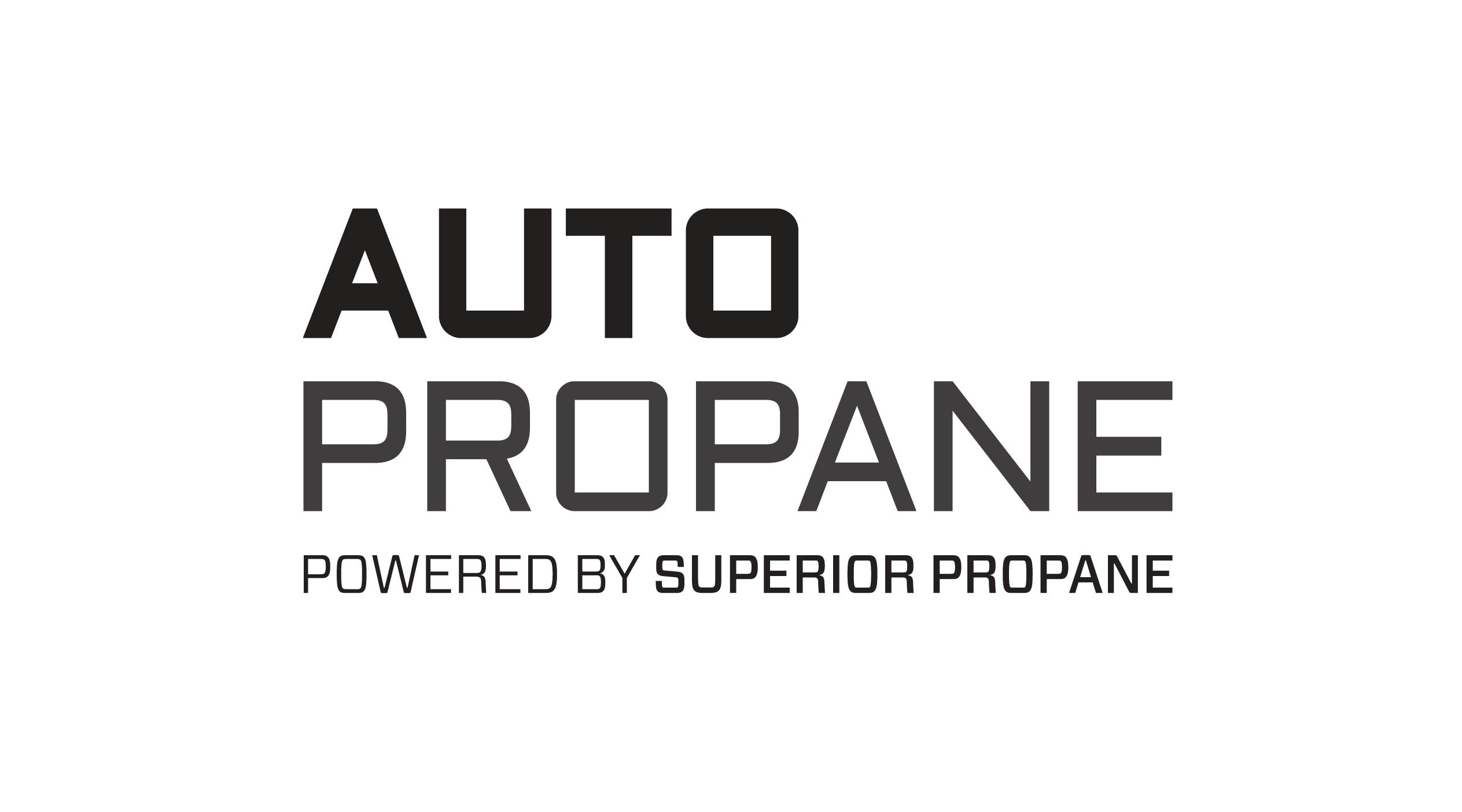Superior Propane
Superior Propane is Canada’s leading propane distributor and has been a trusted propane supplier for over 70 years. Through Canada’s largest propane distribution network, Superior is able to serve homes and businesses virtually anywhere in the country.

Industry
Transportation
Headquarters
Cambridge, Ontario
- At Superior Propane, we’ve witnessed the benefits for our customers who have made the switch to propane to fuel their fleets. From construction and courier companies to taxicabs and school buses, running their fleet on propane has helped these companies reduce the overall cost of ownership.
- We know first-hand it pays off, which is why we’ve started growing our very own auto propane fleet. Today, almost half of Superior Propane’s service vehicles run on propane and our commitment is to outfit all new service vehicles introduced into our fleet with this system.
Cost Savings
$5,000
per vehicle per year
Payback Period
1
year
Auto Propane Tanks
20x more
puncture-resistant than gasoline tanks
Propane Refuelling Station
up to 95%
less in installation costs than gas
HOW IT WORKS
The propane liquid injection conversion system enables our service vehicles to run on propane with either gasoline or diesel in reserve. To operate a vehicle on propane as either a dedicated fuel or dual-fuel vehicle (i.e. switching between gasoline and propane) requires only a few modifications. While some of our large bulk trucks that have been outfitted with the dual-fuel system run on a combination of 80% diesel and 20% propane, our lightduty dual-fuel vehicles use propane as the primary fuel at least 95% of the time, reserving gasoline only as a backup in case drivers are in remote or unfamiliar areas with low propane tank levels.
PROVEN PERFORMANCE
Reduced Fuel Expenses
Superior Propane analyzed the cost and performance of five of its dual-fuel 2016 Ford F350 service trucks, which run on propane 99% of the time and gasoline 1% of the time. Within just seven months of use, Superior’s National Fleet Manager reported a 34% decrease in fuel costs for each vehicle, resulting in an annual savings of almost $5,000 per vehicle. It is estimated that Superior saves approximately 11 cents per kilometre by using propane compared to gasoline.
Payback
The cost to convert one of Superior’s Ford F350 trucks to dual-fuel was approximately $5,700, but the fuel savings quickly made up for the initial cost. “The savings on one dual-fuel service vehicle running 40,000 kilometres typically covers the conversion cost after about one year,” says the National Fleet Manager. “After that, we start seeing a return on our investment for the remaining life of the vehicle.”
Reliable and High Performance
Superior Propane drivers attest that their propane-powered vehicles are similar to the gasoline counterparts when it comes to power, acceleration, cold start properties and driving range. In fact, of all alternative fuel options, propane offers the longest driving range. When comparing octane ratings, propane has a higher rating at 104 compared to 87 for gasoline.1
In terms of safety performance, auto propane tanks are 20 times more puncture-resistant than gasoline tanks and propane has the lowest flammability range of all alternative motor fuels.
Cleaner Fuel
Propane contains less carbon per unit than either gasoline or diesel, resulting in as much as 26% fewer lifecycle greenhouse gas (GHG) emissions than gasoline.2 For light-duty vehicles fuelled with propane, the reduction in GHG emissions is as much as 11% per vehicle when compared to a lightduty vehicle on gasoline, according to the Propane Education & Research Council (PERC). Harmful toxic substances such as Benzene and Formaldehyde are reduced by as much as 96% when using propane versus gasoline.3
Convenient Refuelling Options
Propane is the most practical alternative fuel because it can easily be transported to areas beyond the natural gas mains. It is 270 times more compact in its liquid form and therefore economical to store and transport.4 Because of its portability, auto propane drivers can find refuelling stations across Canada and at many major gas stations. In fact, propane has the largest refuelling infrastructure of any alternative fuel in Canada. This is partly due to the fact that refuelling station installation costs are up to 95% less.5
Depending on fleet size and other refuelling requirements, customers can also set up a fuelling station directly on their site. In this case, each driver is given an access card to fill up at the private station; when the drivers are on the road, they have the option to fill up at stations located across the country.
“The filling time is the same with propane and gasoline,” says Superior Propane Driver. “In fact, it’s easier and faster to fuel up using the propane dispenser in our yard.” Superior drivers now spend more time on the job rather than driving and waiting to fill up at a gas station, resulting in greater cost savings.
Superior Propane analyzed the cost and performance of five of its dual-fuel 2016 Ford F350 service trucks, which run on propane 99% of the time and gasoline 1% of the time. Within just seven months of use, Superior’s National Fleet Manager reported a 34% decrease in fuel costs for each vehicle, resulting in an annual savings of almost $5,000 per vehicle. It is estimated that Superior saves approximately 11 cents per kilometre by using propane compared to gasoline.
Payback
The cost to convert one of Superior’s Ford F350 trucks to dual-fuel was approximately $5,700, but the fuel savings quickly made up for the initial cost. “The savings on one dual-fuel service vehicle running 40,000 kilometres typically covers the conversion cost after about one year,” says the National Fleet Manager. “After that, we start seeing a return on our investment for the remaining life of the vehicle.”
Reliable and High Performance
Superior Propane drivers attest that their propane-powered vehicles are similar to the gasoline counterparts when it comes to power, acceleration, cold start properties and driving range. In fact, of all alternative fuel options, propane offers the longest driving range. When comparing octane ratings, propane has a higher rating at 104 compared to 87 for gasoline.1
In terms of safety performance, auto propane tanks are 20 times more puncture-resistant than gasoline tanks and propane has the lowest flammability range of all alternative motor fuels.
Cleaner Fuel
Propane contains less carbon per unit than either gasoline or diesel, resulting in as much as 26% fewer lifecycle greenhouse gas (GHG) emissions than gasoline.2 For light-duty vehicles fuelled with propane, the reduction in GHG emissions is as much as 11% per vehicle when compared to a lightduty vehicle on gasoline, according to the Propane Education & Research Council (PERC). Harmful toxic substances such as Benzene and Formaldehyde are reduced by as much as 96% when using propane versus gasoline.3
Convenient Refuelling Options
Propane is the most practical alternative fuel because it can easily be transported to areas beyond the natural gas mains. It is 270 times more compact in its liquid form and therefore economical to store and transport.4 Because of its portability, auto propane drivers can find refuelling stations across Canada and at many major gas stations. In fact, propane has the largest refuelling infrastructure of any alternative fuel in Canada. This is partly due to the fact that refuelling station installation costs are up to 95% less.5
Depending on fleet size and other refuelling requirements, customers can also set up a fuelling station directly on their site. In this case, each driver is given an access card to fill up at the private station; when the drivers are on the road, they have the option to fill up at stations located across the country.
“The filling time is the same with propane and gasoline,” says Superior Propane Driver. “In fact, it’s easier and faster to fuel up using the propane dispenser in our yard.” Superior drivers now spend more time on the job rather than driving and waiting to fill up at a gas station, resulting in greater cost savings.
ZERO COMPROMISES
Using propane as a primary fuel for Superior’s service vehicles has proven to be an investment that pays back quickly while reducing the environmental impact of our operations. Another key benefit is the increase in driver productivity by providing onsite refuelling dispensers that enable them to be ready to go when they leave the yard.
Overall, the switch to propane delivered the advantages our fleet managers need without having to sacrifice performance and reliability.
The Superior Difference
Propane Made Easy
We make it easy and stress free for you to manage your propane supply. Our innovative business tools like mySUPERIORTM and SMART* TankTM wireless monitoring system offer all the convenience and control of managing and forecasting your fuel needs anywhere, anytime.
Proven Expertise
We’ve been fueling businesses of all sizes across Canada since 1951. We are the propane experts. We provide solutions to simple or complex projects with a focus on safety and compliance. Let us plan your next project and fuel your growth.
Unmatched Reliability
With Superior Propane, there is no downtime. We promise secure propane supply and an unmatched delivery network to provide propane whenever, wherever. Trust Superior to keep your business, site or fleet running smoothly and trouble-free.
Contact Canada’s leading propane supplier
Our Superior network ensures that your business is running 24/7

COMPLETE THE FORM AND A PROPANE EXPERT WILL CONTACT YOU SHORTLY TO DISCUSS YOUR ENERGY NEEDS.
OR
Call Us Now at
1-855-559-3753
OR
Call Us Now at
1-855-559-3753
1 The Alternative Fuels Data Center (AFDC), a resource of the U.S. Department of Energy’s Clean Cities Program
2, 3, 5 Canadian Propane Association, Auto Propane: A Smart Fuel Solution Fact Sheet
4 Propane Education & Research Council, Propane Facts Fact Sheet


